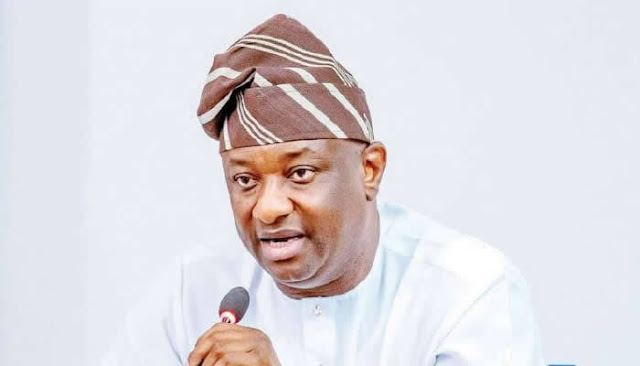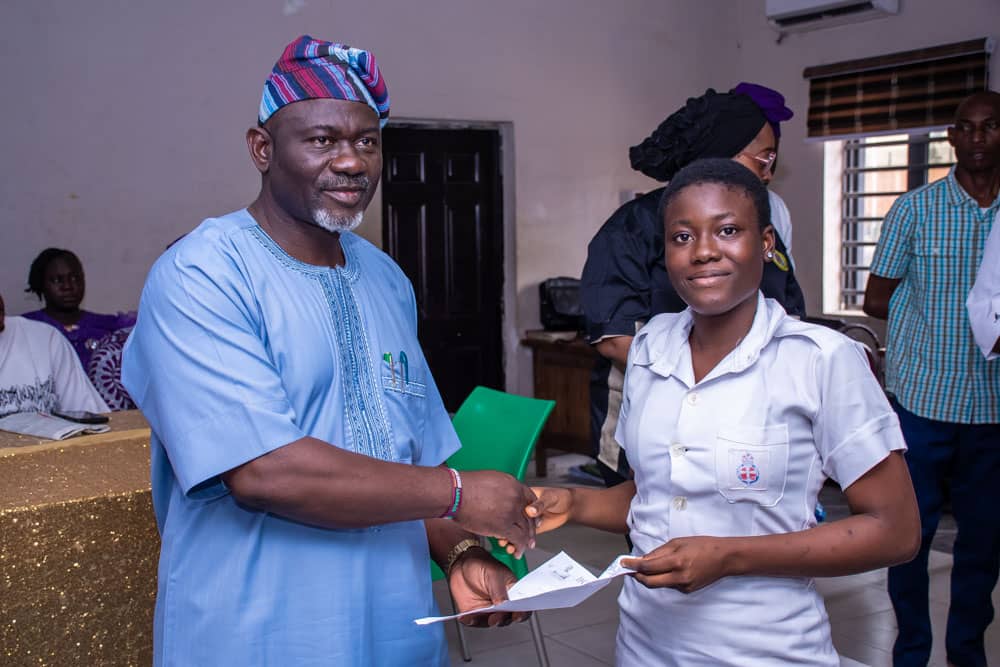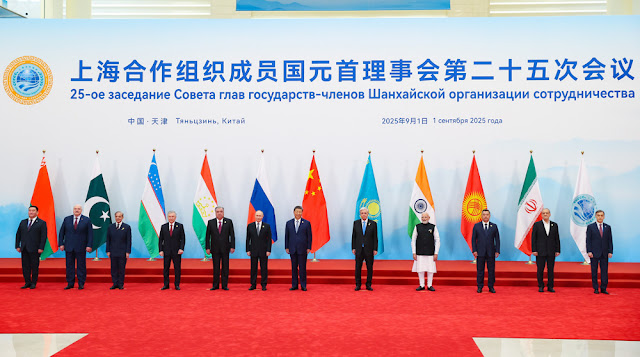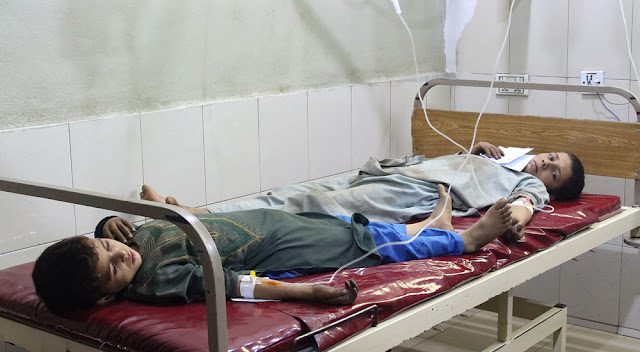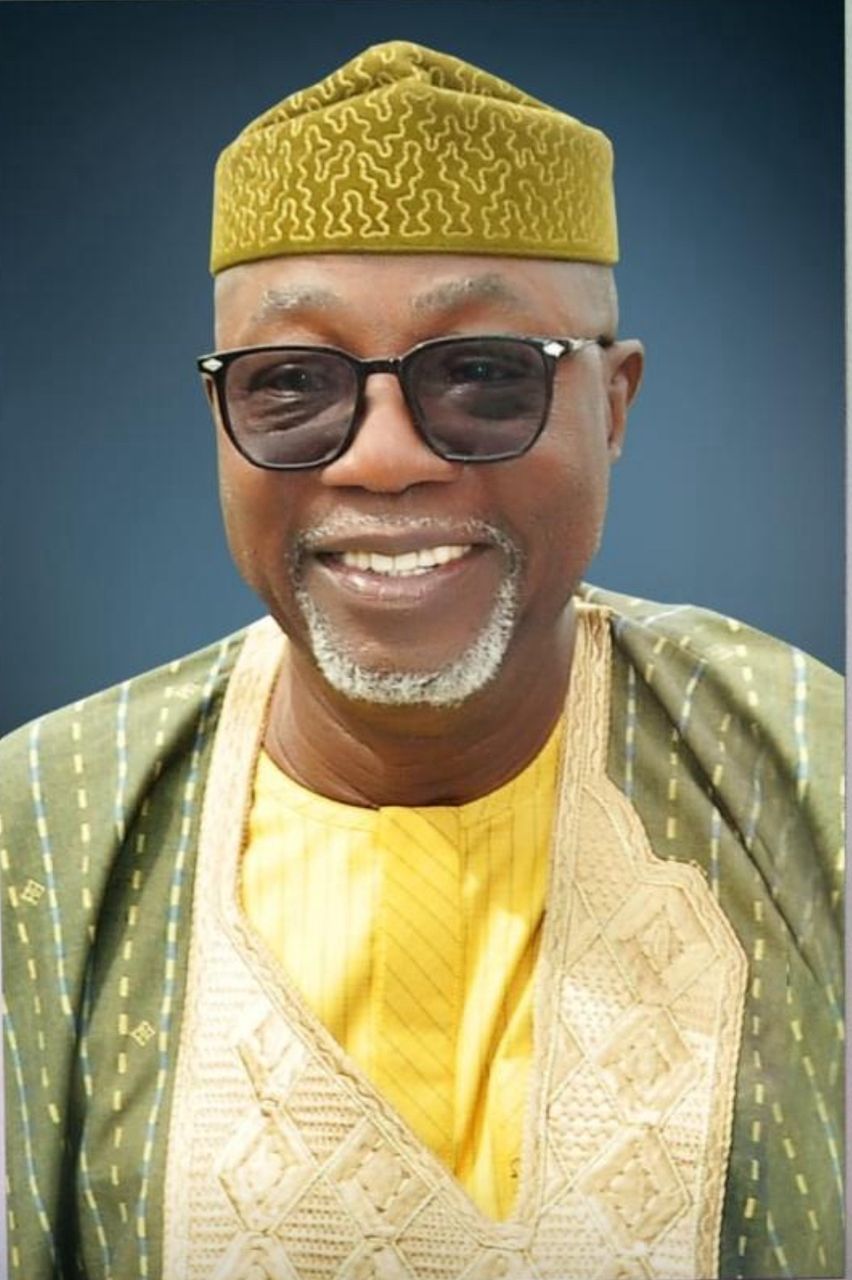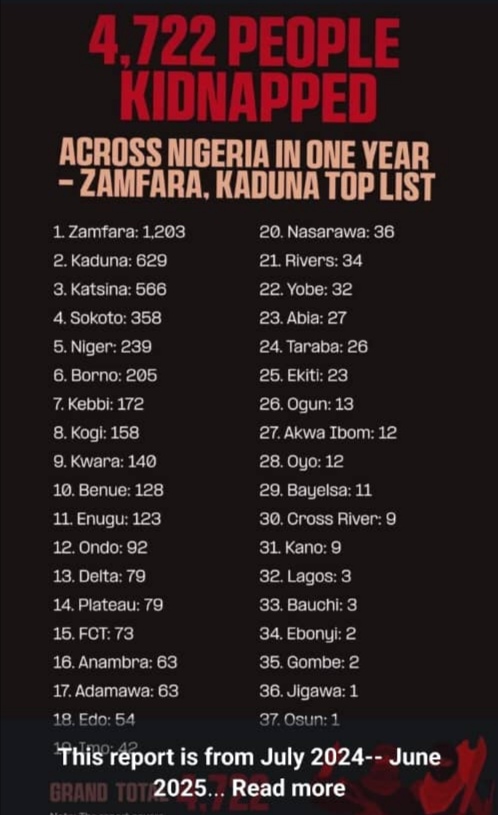As Nigeria approaches the 2027 presidential election, a contentious debate has emerged within the political sphere, sparked by a provocative warning from Festus Keyamo, the Minister of Aviation and Aerospace Development. On August 31, 2025, Keyamo, a Senior Advocate of Nigeria (SAN) and prominent figure in the ruling All Progressives Congress (APC), cautioned the opposition Peoples Democratic Party (PDP) against nominating former President Ebele Goodluck Jonathan as its presidential candidate. In a detailed post on his verified X account, Keyamo argued that Jonathan’s candidacy carries a significant constitutional risk, potentially leading to the PDP being disqualified from the race altogether under Section 137(3) of the 1999 Constitution (Fourth Amendment). This warning, which has ignited discussions across Nigeria’s political landscape, underscores the complex interplay of legal, political, and regional dynamics shaping the country’s future.
Keyamo’s statement comes at a time when the PDP is grappling with internal challenges and strategizing to reclaim power after its loss in the 2023 election. The party’s decision to zone its 2027 presidential ticket to the southern region, a move aimed at correcting past strategic missteps, has fueled speculation about Jonathan’s potential candidacy. However, Keyamo’s caution, rooted in a legal interpretation of constitutional amendments, raises critical questions about the PDP’s options and the broader implications for Nigeria’s democratic process. This article provides a comprehensive exploration of Keyamo’s warning, the constitutional debate, the PDP’s strategic dilemmas, and the broader political context, offering a nuanced perspective on Nigeria’s road to 2027.
Keyamo’s Warning: A Constitutional Conundrum
Festus Keyamo’s warning, articulated in a lengthy post on X, centers on the constitutional eligibility of former President Goodluck Jonathan to run for office in 2027. Keyamo argues that nominating Jonathan poses a “major constitutional risk” for the PDP, citing Section 137(3) of the 1999 Constitution (as amended), which prohibits anyone who has been sworn in as president twice from contesting again. Jonathan, who served as president from May 5, 2010, to May 29, 2015, after completing the term of the late President Umaru Musa Yar’Adua and winning a full term in 2011, is at the heart of this legal debate.
Keyamo’s argument hinges on the timing of the constitutional amendment. In 2015, a court ruling cleared Jonathan to run for re-election, as the Fourth Amendment to the Constitution, which introduced Section 137(3), had not yet been enacted. However, the amendment, passed in 2018, explicitly states that a person who has been sworn in as president for two terms—whether elected or completing another’s term—is ineligible to run again. Keyamo contends that this provision could disqualify Jonathan if challenged in court, with the Supreme Court as the final arbiter. “If he is fielded, the Party runs the RISK of NOT HAVING A CANDIDATE AT ALL,” Keyamo warned, emphasizing that a post-nomination disqualification would leave the PDP unable to replace its candidate, effectively nullifying its participation in the election.
Keyamo’s caution is not merely a legal argument but a strategic jab at the PDP’s electoral prospects. He argues that the party’s decision to consider Jonathan, despite his “purported eligibility” to serve only one more term, ignores the judicial danger ahead. “All the arguments as to whether the section can be interpreted to affect him will not be decided on social media, but at the Supreme Court,” he stated, urging the PDP to avoid a scenario where it could be declared as having no candidate. Such an outcome, he warned, would preclude accusations of a corrupt judiciary, as the party would have knowingly ignored the constitutional risk.
The Constitutional Debate: Jonathan’s Eligibility
The question of Goodluck Jonathan’s eligibility is a complex one, rooted in Nigeria’s evolving constitutional framework. Jonathan’s presidency began under unique circumstances. Following the death of President Yar’Adua in 2010, Jonathan, then vice president, assumed the presidency under the “doctrine of necessity” invoked by the National Assembly. He completed Yar’Adua’s term from February 9, 2010, to May 29, 2011, before winning a full term in the 2011 election, serving until May 29, 2015. His defeat by Muhammadu Buhari in the 2015 election marked the end of his presidency, but speculation about his return has persisted, fueled by his national appeal and perceived moderation.
The 1999 Constitution, as amended in 2018, introduced Section 137(3), which states: “A person who was sworn in to complete the term for which another person was elected as President shall not be elected to such office for more than a single term.” This provision appears to apply to Jonathan, who was sworn in twice—first to complete Yar’Adua’s term and then for his own elected term. However, Jonathan’s supporters, including his cousin Azibaola Robert, argue that he is “100% constitutionally and legally qualified” to contest in 2027, citing the 2015 court ruling and asserting that the amendment does not retroactively apply to his previous tenure.
Robert, a lawyer and former pro-democracy activist, dismissed Keyamo’s warning as “unsolicited legal advice,” arguing that Jonathan has access to “more celebrated, more experienced SANs” who confirm his eligibility. He emphasized that any decision by Jonathan not to run would be based on personal choice, not constitutional ineligibility. This counterargument highlights the ambiguity surrounding the amendment’s interpretation, which could hinge on whether the Supreme Court views Jonathan’s two oaths as constituting two full terms. The lack of a definitive legal precedent, as Keyamo noted, makes the PDP’s potential nomination of Jonathan a high-stakes gamble.
The PDP’s Strategic Dilemma: Zoning and Candidate Selection
Keyamo’s warning comes as the PDP navigates a critical juncture in its quest to reclaim the presidency in 2027. The party’s decision to zone its presidential ticket to the southern region is a strategic move to correct what Keyamo described as its “original sin” in 2023: failing to zone the ticket to the south. In the 2023 election, the PDP’s choice of Atiku Abubakar, a northerner, alienated its traditional strongholds in the South-South and South-East, contributing to its loss to the APC’s Bola Tinubu. Keyamo argues that this misstep cost the PDP its “decades-long stranglehold” on these regions, and the party’s attempt to rectify it by zoning the 2027 ticket south is fraught with challenges.
Jonathan, a former president from the South-South (Bayelsa State), is seen as an attractive candidate due to his national recognition and perceived eligibility for a single term. His presidency (2010–2015) was marked by efforts to stabilize Nigeria’s economy and address security challenges, though it faced criticism over corruption and the Boko Haram insurgency. Since leaving office, Jonathan has maintained a low political profile, focusing on international diplomacy and peace advocacy, which enhances his appeal as a unifying figure. However, Keyamo’s warning suggests that the PDP’s reliance on Jonathan could backfire, leaving it without a candidate if the Supreme Court rules against his eligibility.
The PDP’s alternative options are equally complex. Keyamo dismissed the viability of a South-West candidate, arguing that “no other region of the country will vote for a fresh Yoruba candidate who would be eligible for fresh two terms in office.” He noted that such a candidate would face the APC’s “well-oiled structures” in the South-West, a region dominated by Tinubu’s political machine. Similarly, Keyamo addressed the possibility of the PDP wooing Peter Obi, the former Labour Party candidate who ran in 2023. Obi, a South-East native, enjoys significant support among young voters and the “Obidient” movement, but Keyamo argued that his return to the PDP would damage his credibility, as some supporters might view it as a return to a “structure of criminality.”
The PDP’s zoning strategy reflects Nigeria’s complex regional politics, where power rotation between the north and south is a deeply ingrained principle. Keyamo emphasized that “zoning sentiments remain the reality of our politics and it is not about to end,” despite criticism from younger, social media-savvy voters who reject such considerations. The party’s failure to navigate these dynamics effectively in 2023 has left it in a “non-enviable position,” according to Keyamo, with limited options to produce a winning candidate in 2027.
Profiles of Key Figures: Voices in the Debate
Festus Keyamo: A Senior Advocate of Nigeria and the Minister of Aviation and Aerospace Development, Keyamo is a prominent APC chieftain known for his legal acumen and political strategizing. His warning to the PDP reflects his dual role as a government official and a political operative, aiming to weaken the opposition while reinforcing the APC’s dominance. Keyamo’s analysis of the PDP’s predicament is both a legal argument and a strategic maneuver, highlighting his influence in shaping Nigeria’s political discourse.
Goodluck Jonathan: Nigeria’s former president (2010–2015), Jonathan remains a polarizing yet respected figure. His tenure saw economic growth but was marred by security challenges and corruption allegations. Since leaving office, he has stayed largely apolitical, focusing on international mediation and peace advocacy. His potential candidacy in 2027 has sparked debate, with supporters viewing him as a unifying figure capable of challenging Tinubu, while critics, like Keyamo, highlight the legal risks.
Azibaola Robert: A lawyer and Jonathan’s cousin, Robert has emerged as a vocal defender of the former president’s eligibility. His rebuttal to Keyamo and human rights lawyer Chidi Anselm Odinkalu underscores the legal and political divide over Jonathan’s candidacy. Robert’s assertion that Jonathan is “100% constitutionally qualified” reflects the confidence of Jonathan’s inner circle, though it remains untested in court.
Peter Obi: The former Anambra governor and 2023 Labour Party candidate, Obi represents a new wave of Nigerian politics, driven by youth support and anti-establishment sentiment. His potential return to the PDP, as speculated by Keyamo, would be a significant shift, but it risks alienating his base, who view the PDP as part of the old political order.
Geopolitical and Regional Dynamics: The 2027 Election Landscape
The 2027 presidential election is shaping up to be a pivotal moment in Nigeria’s democratic journey. The APC, led by President Bola Tinubu, holds a strong position, bolstered by its control of key regions, particularly the South-West and parts of the North. Tinubu’s administration has faced criticism over economic challenges, including inflation and fuel subsidy removal, but his political machinery remains formidable. Keyamo’s warning to the PDP is a strategic move to exploit the opposition’s vulnerabilities, ensuring the APC’s dominance in the upcoming election.
The PDP, once Nigeria’s dominant party (1999–2015), is struggling to regain its footing after successive losses in 2015, 2019, and 2023. The party’s internal divisions, exacerbated by the 2023 zoning controversy, have weakened its cohesion. The decision to zone the 2027 ticket to the south is an attempt to reclaim support in the South-South and South-East, but Keyamo’s analysis suggests that this strategy is fraught with risks. The potential disqualification of Jonathan, coupled with the challenges of fielding a South-West or South-East candidate, could leave the PDP fragmented and unable to mount a credible challenge.
The broader regional dynamics also play a critical role. Nigeria’s political landscape is shaped by ethnic and regional considerations, with the North, South-West, South-South, and South-East vying for influence. The North, which held power for eight years under Muhammadu Buhari (2015–2023), is unlikely to support a southern candidate eligible for two terms, as Keyamo noted. The South-West, dominated by Tinubu’s APC, is a challenging terrain for the PDP, while the South-East and South-South remain key battlegrounds. The PDP’s ability to navigate these dynamics will determine its electoral prospects.
Critical Analysis: Questioning the Narrative
Keyamo’s warning, while grounded in legal reasoning, is not without political motives. As an APC stalwart, he has a vested interest in undermining the PDP’s strategy, and his focus on Jonathan’s eligibility could be seen as a preemptive strike to sow doubt within the opposition. The constitutional debate, while valid, remains speculative until tested in court, and Keyamo’s emphasis on the Supreme Court’s role may be an attempt to intimidate the PDP into abandoning a potentially strong candidate.
The counterargument from Jonathan’s supporters, particularly Azibaola Robert, challenges the narrative of ineligibility, highlighting the ambiguity of the constitutional amendment’s retroactive application. The 2015 court ruling in Jonathan’s favor suggests that legal precedent could support his candidacy, though the amended Section 137(3) introduces uncertainty. This legal gray area underscores the need for judicial clarity, which the PDP must consider before nominating Jonathan.
Keyamo’s dismissal of a South-West candidate and Peter Obi’s potential return also warrants scrutiny. His assertion that no region would support a “fresh Yoruba candidate” may overstate regional biases, as voter sentiment is influenced by multiple factors, including economic performance and candidate charisma. Similarly, his claim that Obi’s return to the PDP would alienate his base ignores the possibility of strategic alliances that could unify the opposition. These arguments reflect Keyamo’s attempt to frame the PDP as a party with no viable options, a narrative that serves the APC’s interests.
Broader Implications: Nigeria’s Democratic Future
Keyamo’s warning has significant implications for Nigeria’s democratic process. A potential disqualification of Jonathan could deepen public distrust in the judiciary, particularly if the PDP frames it as political interference. The party’s inability to field a candidate would also weaken the opposition, potentially entrenching the APC’s dominance and raising concerns about democratic competition. Nigeria’s history of electoral disputes, including the 2023 election controversies, underscores the need for a transparent and fair process in 2027.
The PDP’s strategic choices will also shape its future. Fielding Jonathan, despite the legal risks, could galvanize support in the South-South and South-East, but a disqualification would be catastrophic. Alternatively, selecting a less controversial candidate, such as a South-West or South-East figure, requires navigating regional politics and overcoming the APC’s strongholds. The party’s ability to unite its factions, including reconciling figures like Atiku Abubakar and Nyesom Wike, will be crucial to its success.
The broader political context, including economic challenges and youth discontent, adds another layer of complexity. The “Obidient” movement, which propelled Peter Obi’s 2023 campaign, reflects a growing demand for change among young Nigerians. The PDP’s ability to harness this energy, while addressing regional and constitutional concerns, will determine its relevance in 2027 and beyond.
Conclusion: A High-Stakes Gamble for the PDP
Festus Keyamo’s warning about the risks of fielding Goodluck Jonathan in 2027 has thrust the PDP into a strategic and legal dilemma. The constitutional ambiguity surrounding Jonathan’s eligibility, combined with the party’s need to reclaim its southern base, creates a high-stakes gamble that could shape Nigeria’s political future. While Jonathan’s candidacy offers the promise of unity and experience, the potential for disqualification threatens to derail the PDP’s ambitions.
As Nigeria prepares for the 2027 election, the interplay of law, politics, and regional dynamics will define the contest. Keyamo’s intervention, while strategic, highlights the broader challenges facing the PDP and the opposition as a whole. Whether the party heeds his warning or forges ahead with Jonathan, the road to 2027 promises to be a test of resilience, strategy, and democratic integrity. For now, Nigeria watches as the PDP navigates this critical crossroads, with the nation’s political future hanging in the balance.


